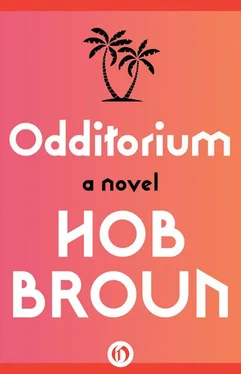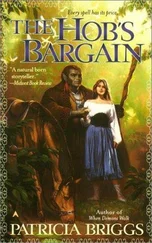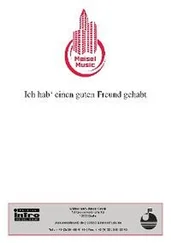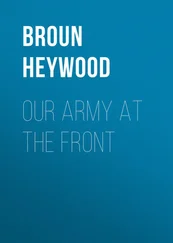Lucky Teter, king of the thrill drivers, knots a white silk scarf around his neck, and fingers the crease in his jodhpurs. He leaves for basic training at Fort Bragg at six o’clock tomorrow. Lucky’s wife and his mother are on hand to see his last performance. Strapped into a big black Packard, he is going to shoot up a wooden ramp, soar high over the wreckage of the biplane and come to a dead stop in clouds of dust, directly under the goalposts. Lucky takes a last long drag from a cigarette, then flips it into the grass. It is time now. The ramps have been moved into place, the car is waiting already warmed up, motor running. As Lucky runs onto the field someone from the crew tells him to take it easy, don’t push.
He makes one slow lap, working the crowd, building the tension. When it’s all lined up he waits, revving out, spitting exhaust, rumbling like a mad bull about to charge. A massive cheer as he lurches forward and bears down on the ramp. Airborne for a second, sunlight all sleek and opaline on its black flanks, the roadster dips, falls short and smashes head-on into the landing ramp; its support beams are laid lengthwise and they thrust forward on impact, impaling Lucky, tearing his head off. Lucky’s wife leaps from the stands. Flames have begun to blister paint along the rocker panels and a thin red line widens and extends along the white silk scarf floating out the window….
Karl’s head slid down the side of the bowl and met the floor. He turned on his side and drew up his knees at the ambush of nausea. Then in surflike action, the nausea subsided and something else rolled in: an indefinite sense of wrong, a soft minor chord vibrating along his spine. Lucky Teter had been wearing the face of someone Karl knew well. That laughing face inside the ruined car.
Good Christ, but he needed a drink. He took a firm hold on the bottle of blackberry brandy. The first beams of warmth and peace danced in his abdomen and he whispered across the bottle mouth — creating a kind of flute-like accompaniment — the one and only Bible passage he knew by heart.
“Give strong drink unto him that is ready to perish, and wine unto those that be of heavy hearts. Let him drink and forget his poverty, and remember his misery no more.”
So overcome was he by the wisdom and compassion of these words that his jaw began to tremble and his eyes welled with tears. Why couldn’t the folks out there show a little understanding? A reassuring hand on the shoulder, a murmur of sympathy; it didn’t have to mean anything, just the sound would be enough, some small indication that a drunk was not without his logic. But there were smirks instead, the hard little eyes that seemed to read a permanent plaque on Karl’s chest: DAMNED FOREVER.
Like that cozy roadside spot he’d drifted into on the way home, stiff and sore from a night in an irrigation ditch and forty miles in the back of a gas fitter’s pickup, looking for nothing more than a little something to rinse the exhaust fumes out of his mouth. The place was called Happy’s. They had padded stools and a bumper pool table right by the front window. Working the bar was this sullen granny in a T-shirt. For close to twelve minutes (Karl timed her on a silvery plastic rotating clock advertising a line of canned martinis), she bustled all over, buffing the glass on the cigarette machine, counting empty beer bottles and freshening the bourbon and milk of the only other customer in the joint. It was only after, looking straight at him, she had released some vile perfume from a spray can that she finally asked if he wanted something. And she wouldn’t let go of the beer bottle until he’d put some money down.
Yeah, it was that kind of thing. The way people liked to shit on you out there. Even people that knew you, like R.C. Owens right down at the crossroads store. Anytime Karl walked in there, R.C. would come out from behind the counter and follow his every step like he was some spic fruit tramp between harvests; and he’d explained that thing last April a dozen times. How he’d carried those wieners outside because he remembered that he’d left his wallet on top of the Coke machine. But there was no human charity out there. Folks needed their victims.
Karl leaned shakily against the bedroom door, the bottle nestled against his cheek. He yearned miserably for his wife. She could soothe him with her voice, comfort him with a sandwich. So young and lovely, how had he kept her this long? He browsed through hangers in the closet, stroking her clothes, craving the slightest trace of her that might still reside in the fabric. His head swaddled in bunched skirts, jackets and blouses, he haltingly recalled their last time in bed. Crackles of heat lightning on the radio, handcream spilled on the sheets. Difficulty staying firm. Oh well. He wobbled to the floor, sat cross-legged and contemplated Tildy’s shoes neatly aligned on the closet floor, each insole dappled with the gray outline of heel and toes like paw prints in sand. It was hell, missing her this way, looking for her in a batch of empty shoes.
He took an enormous hit of brandy as a kind of blunting agent. Real nice, he’d stopped tasting it now. Ought to have just about a full tank by this time — there was an audible sloshing in his belly when he moved — but it didn’t seem to be putting him any closer to the hollow stupor he’d been longing to enter for days. And it was into the cooking sherry after this. He was going to need a miracle at this rate, some of that water-into-wine action. Karl tipped back, curled himself at the foot of the bed in the hope that, given a few minutes, he might pass out.
The floor was hard; his left ear throbbed. There were dust balls and odd pillow feathers right next to his eyes when he opened them. Wouldn’t mind if the whole house looked like it did under the bed, dark and untouched. Secret. A man could pass out in style in a house like that. Gradually, he extended one arm into the shadows and touched something hairy, more substantial than dust. He closed his hand around … It had bulk, there was fur. A dead animal. He would have squawked, probably injured himself with a sudden recoil, but his ganglia were so numbed, his reflexes so torpid, that he pulled weakly and the object skittered into light. It was one of Tildy’s slippers. He lifted it out and, cringing at himself even as he did so, kissed the spiky floss of blue orlon. Grit adhered to his lips sticky with blackberry brandy. More shoes, for Chrissakes. Into the slipper’s interior, stiff with wifely sweat, went his hand.
“I love you, Karl,” he squeaked, pinching the sole of the slipper into a kind of puppet mouth.
Inside something skidded under his fingertips. Square, crisp, with sharp corners.
“You got to ask to get,” he said in the puppet voice.
He looked at the ceiling, drew out his hand, dropped his eyes again. A fifty-dollar bill folded eight ways. Didn’t General Grant look fine, even with a crease right through his eyes!
Sweet, sweet Tildy. There when he needed her even when she wasn’t there. She’d been paying the cost to be the boss right from the start; hired Arlo the Aqua Boy to be best man at their wedding. And hadn’t the preacher swallowed hard when Arlo handed up the ring in webbed hands.
Karl chugged the brandy dregs and came to his feet shadowboxing, a new man. Flush. He knew just what he was going to do, too. Get hold of that turnip squeezer, R.C. Owens, and order up.
He dialed, waited. “Yo, R.C, this is your day and mine to shine.”
“Who in hell is this?”
“Karl Gables, good buddy.”
“What you want, thief?”
“No way to talk, R.C. No way at all. I wanna mend fences with you, throw a little business your way. Got some friends coming in for the weekend, gonna need some stuff. Lessee … two pounds of olive loaf. Uh-huh. Couple of white breads.”
Читать дальше












